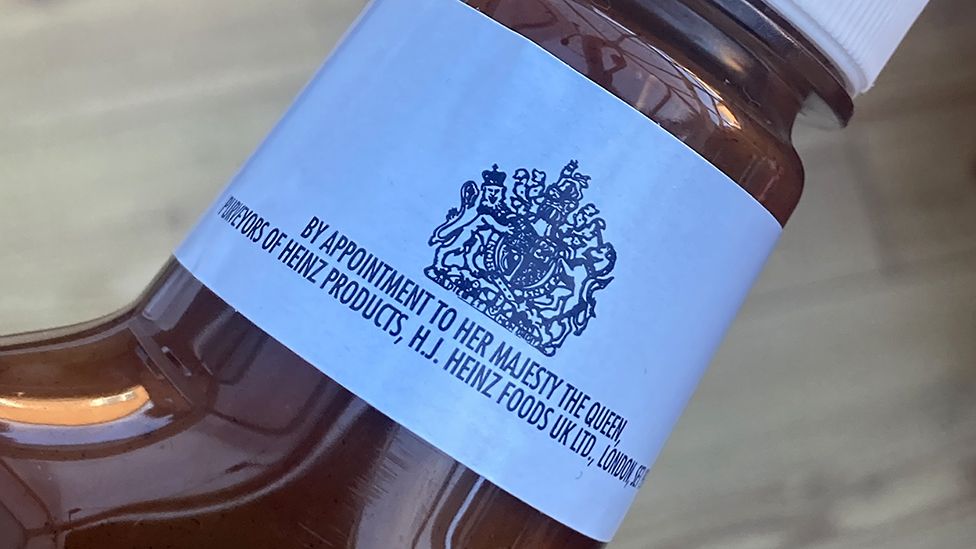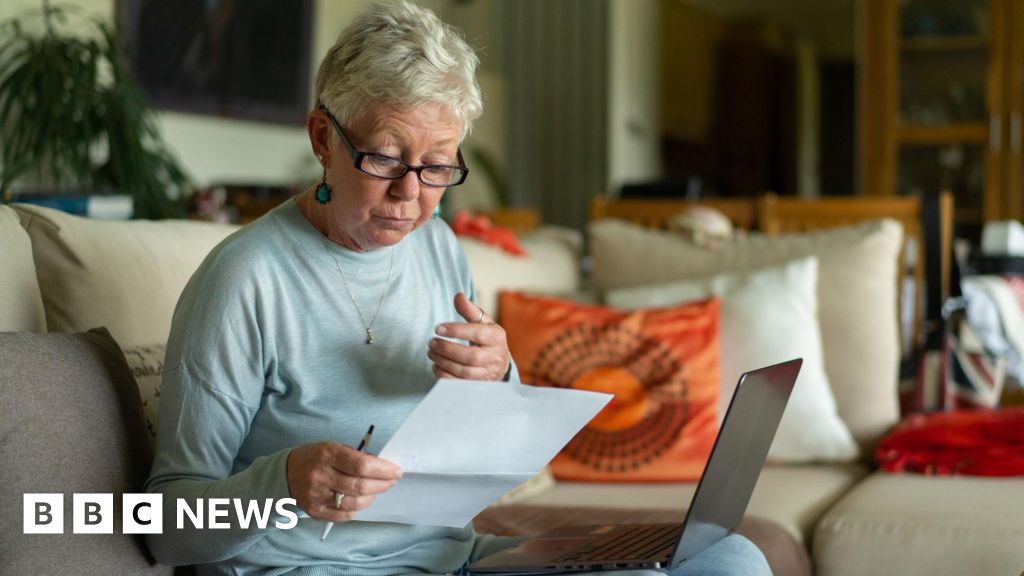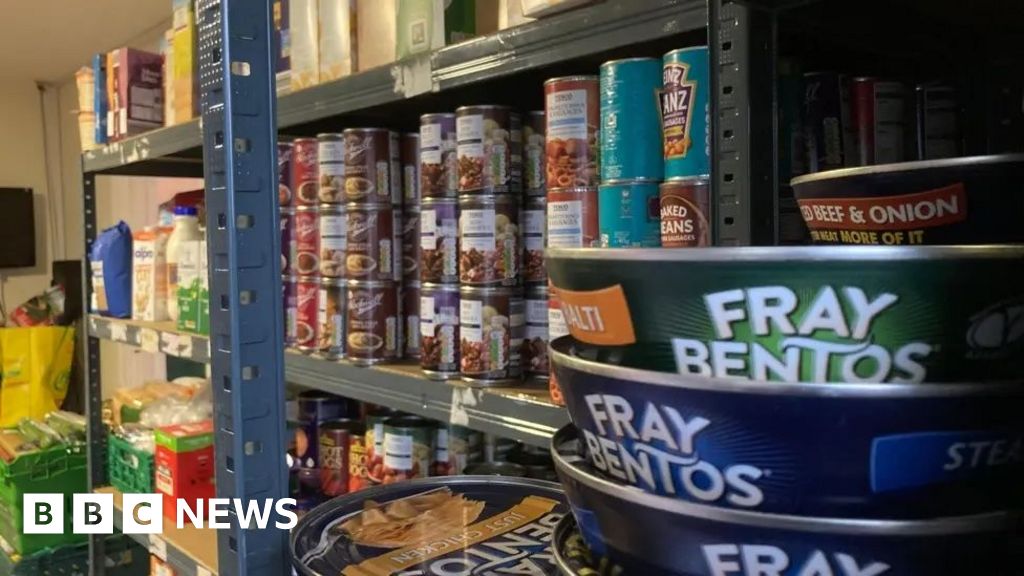ARTICLE AD BOX
By Rebecca Wearn & Colletta Smith
BBC Business

In many cupboards, bathroom cabinets - or even on the side of a few lorries - the Queen's Royal Arms have, as a symbol, shown consumers that those same products grace palaces and castles.
But all of that is about to change.
When Queen Elizabeth II passed away at her Scottish estate in Balmoral, more than 600 Royal Warrants passed with her.
These symbols on packaging or websites not only show that the companies meet exacting standards, but have also supplied the Royal Household on a regular basis.
The Royal Warrant Association has said, however, that these businesses must now reapply for their warrants. They are reviewed after a change in reigning sovereign but companies can continue to use the Royal Arms in connection with the business for up to two years.
At Crown Paints in Darwen, Lancashire, they are hoping they'll be able to keep that special relationship.
"It's a real badge of honour and we're really proud of it," explains marketing director Katie McLean, adding that it has become a key factor when it comes to recruiting and retaining staff.
"We have people who have worked here for generations, whose family worked here back in the 1960s when the Queen visited us."
The business was awarded the Royal Warrant by King George VI in 1949 and it was renewed by the Queen in 1955.
Crown Paints was awarded the Royal Warrant by King George VI in 1949.
A metal crest hangs high above the main doors of its head office and the firm has recently supplied paints to Sandringham estate and Frogmore Cottage.
Although Katie admits it's good for business - and for exports - she says the Warrant runs far deeper than that: "It's instilled a sense of pride but also responsibility in everyone here at Crown. It means we've always worked with community projects here and lead the way in sustainability," she said. "We'll carry on doing that and hope that it's something we and the King are aligned on."
Sustainability - and the environment - are the words that keep coming up when speaking to businesses about the potential desires of King Charles III.
The 180 warrants Charles issued as Prince of Wales will continue now that he is King because they go with the household, not the title.
Many of the products affiliated with the Queen are very high-end; Fortnum & Mason goodies, champagnes and equine supplies. Others include household items such as Marmite, Twinings Tea, Tate & Lyle sugars, Cadbury's chocolates and Heinz sauces.
Heinz has been supplying Royal Households since 1951, thanks to inheriting some close connections when it purchased Lea and Perrins. The latter even made a tiny miniature bottle for the children's doll's house in Windsor Castle in 1924.
Image source, Heinz
Image caption,The Queen and the Duke of Edinburgh visited the Heinz factory near Wigan in 2009.
First stocked as luxuries in department stores, Heinz goods are now present in many kitchens across the country.
In May 2009, the Queen and the Duke of Edinburgh visited the Heinz factory in Kitt Green near Wigan, to mark the 50th anniversary of its official opening, a Heinz spokesperson said.
And they're not the only American family favourite on the list.
Kellogg's director Paul Wheeler says the company has such a strong history of serving up cereal to the Queen, they once had a little van, called Genevieve, to make deliveries to the palace.
Paul Wheeler told the BBC the firm had held a Royal Warrant for the entirety of Queen Elizabeth II's reign.
"Nowadays, the Royals get their cereal from us through their normal grocery supplier," Paul added, but he said it has been a privilege to hold the Warrant for the Queen's entire reign, and part of that of her father King George VI too.
As an American firm, the Warrant has been a boost for Kellogg's. Although the crest is a mark of quality for their products, it does not go on each box.
The Manchester production site is Kellogg's largest in Europe, but boxes shipped to the Republic of Ireland, for example, do not include the crest.
Change does also mark a moment of opportunity. Consumer behaviour expert Dr Amna Khan says such marks, much like Red Tractor or Fairtrade, are a shorthand for making purchasing decisions.
"They streamline purchasing decisions and these products will make consumers feel elevated, buying into status and nostalgia."
Dr Khan suspects that King Charles III's Warrants will continue the trend of modernisation: "We'll see newer brands that connect with consumers better," she said.
"That's the best endorsement any product can get. All any logo wants to say is that [this company is] different and distinct - and it doesn't get much more distinct than the royal family."
Firms can, of course, also fall from favour.
In 1999, the palace decided to end the royal endorsement of the tobacco company Gallaher - makers of Benson & Hedges and Silk Cut cigarettes - ending a 122-year agreement with the firm.
The palace said at the time it was due to lack of demand from the Royal Household, but commentators said that King Charles - a fervent anti-smoker - was reportedly instrumental in the withdrawal. It was welcomed by anti-smoking groups.
The King and the Queen Consort now have the power to award a Warrant. There is also an expectation that the new King will grant his son and heir, Prince William, the ability to issue his own Warrants.
But it remains to be seen which type of firms are bestowed with the honour.
Around the BBC
Related Internet Links
The BBC is not responsible for the content of external sites.

 2 years ago
39
2 years ago
39








 English (US) ·
English (US) ·